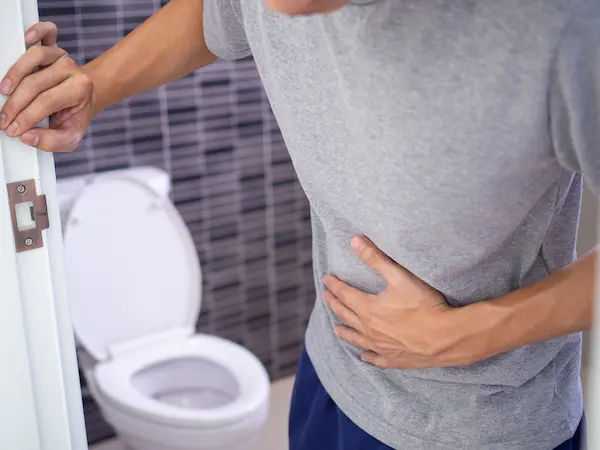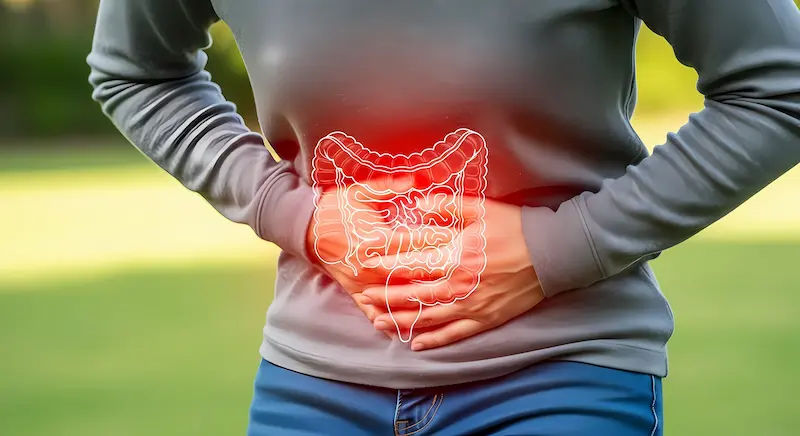Guide to Constipation Awareness Month
Your complete guide to Constipation Awareness Month. Learn about this health observance, common myths, practical tips for prevention and relief, and when to see a doctor.

.webp?tr=q-80,f-webp,w-350,dpr-2,c-at_max 700w)
Your Complete Guide to Constipation Awareness Month: Tips, Myths & Relief
Constipation is one of the most common gastrointestinal complaints worldwide, yet it’s often shrouded in silence and embarrassment. Every December, Constipation Awareness Month aims to break this stigma, encouraging open conversations about digestive health and empowering people with knowledge and solutions. If you've ever struggled with irregularity, you're far from alone. This guide is designed to be your comprehensive resource, moving beyond quick fixes to explore the causes, remedies, and prevention strategies for lasting gut health. We'll debunk common myths, highlight when it's crucial to consult a doctor, and provide actionable advice you can start using today. Let’s normalize talking about bowel health and work towards a more comfortable future.
What is Constipation Awareness Month?
Constipation Awareness Month is observed every December. It’s a dedicated time for healthcare professionals, organizations, and advocates to amplify their efforts in educating the public about the causes, impacts, and treatments of constipation.
The Importance of Talking About Gut Health
- Many people suffer in silence, believing constipation is merely a minor inconvenience or a personal failing. This silence can prevent individuals from seeking effective help, leading to prolonged discomfort and potentially masking more serious underlying conditions. This awareness month vitalizes the conversation, reducing shame and highlighting that digestive health is a critical component of overall well-being.
Key Goals of the Awareness Campaign
- The primary goals are threefold: to educate the public on prevention and management, to reduce stigma by encouraging open discussion, and to promote screening for those with chronic symptoms, ensuring they get the professional care they may need.
Consult a General Physician
Understanding Constipation: More Than Just an Inconvenience
Constipation isn't just about infrequency; it's about the entire experience of having a bowel movement.
What Exactly is Constipation? Defining the Symptoms
Medically, constipation is often defined as having fewer than three bowel movements per week. However, key symptoms also include:
- Straining during bowel movements
- Passing lumpy or hard stools
- Feeling of incomplete evacuation
- Feeling a blockage in your rectum
- Needing to use manual maneuvers to facilitate a bowel movement
Acute vs. Chronic Constipation: Knowing the Difference
- Acute Constipation: Comes on suddenly and is often short-lived. It's frequently linked to a recent change in diet, travel, stress, or a temporary illness.
- Chronic Constipation: Is diagnosed when symptoms persist for several weeks or longer. This type requires a more thorough approach to identify the root cause and implement long-term chronic constipation treatment strategies.
Common Causes of Constipation: Why It Happens
Understanding the "why" is the first step to finding the right solution.
Dietary and Lifestyle Factors
This is the most common category. Causes include:
- Low-Fiber Diet: Not eating enough fruits, vegetables, and whole grains.
- Inadequate Hydration: Not drinking enough water and fluids.
- Lack of Exercise: A sedentary lifestyle can slow down your digestive system.
- Ignoring the Urge: Regularly delaying bowel movements can weaken signals over time.
- High Consumption of Processed Foods: These are typically low in fiber and high in fat.
Underlying Medical Conditions and Medications
Sometimes, constipation is a symptom of another issue:
- Medical Conditions: Irritable Bowel Syndrome (IBS), diabetes, hypothyroidism, neurological disorders like Parkinson's, and pelvic floor dysfunction.
- Medications: Certain pain opioids, antidepressants, antacids containing calcium or aluminum, and blood pressure medications can list constipation as a side effect.
Effective Home Remedies for Constipation Relief
For many, simple natural remedies for constipation can provide significant relief.
The Power of Fiber: Soluble vs. Insoluble
- Fiber is indigestible plant matter that adds bulk and softness to stool.
- Soluble Fiber (found in oats, apples, nuts, beans) dissolves in water, forming a gel-like substance that softens stool.
- Insoluble Fiber (found in wheat bran, vegetables, whole grains) adds bulk and helps material move through your digestive system.
- Aim for a mix of both for the best results. The recommended intake is 25-35 grams per day.
Hydration: Why Water is Your Best Friend?
- Fiber needs water to work effectively. Without adequate hydration, a high-fiber diet can actually make constipation worse. Aim for 8-10 glasses of fluids daily, primarily from water. Herbal teas and broths also contribute.
Get Moving: How Exercise Stimulates Your Gut
- Physical activity increases muscle activity in your intestines. A brisk 30-minute walk, swimming, or yoga can be incredibly effective in stimulating a bowel movement and is a cornerstone of long-term strategies for gut health.
When to Seek Professional Help?: Warning Signs
While home remedies work for many, it's crucial to know when to seek help. If your condition does not improve after trying these methods for a few weeks, it's time to consult a professional.
Red Flag Symptoms You Should Never Ignore
Consult a doctor immediately if you experience:
- Constipation that is new, severe, or lasts more than three weeks
- Blood in your stool or rectal bleeding
- Unexplained weight loss
- Constant abdominal pain or cramping
- Vomiting
- Fever or lower back pain
These could be signs of a more serious underlying condition that requires medical diagnosis and treatment.
The Importance of a Professional Diagnosis
- A doctor can help determine if your symptoms of severe constipation are due to a motility disorder, pelvic floor issue, or another condition. They can recommend targeted treatments, prescribe medication, or refer you to a specialist (gastroenterologist). If symptoms persist beyond two weeks, consult a doctor online with Apollo24|7 for further evaluation and personalized advice.
Busting Common Myths About Constipation
- Myth 1: You must have a bowel movement every day to be healthy. Truth: Regularity is different for everyone. "Normal" can range from three times a day to three times a week.
- Myth 2: Constipation causes toxins to build up in your body. Truth: Your liver and kidneys are responsible for filtering toxins. Constipation is uncomfortable but does not cause autointoxication.
- Myth 3: Long-term use of laxatives is safe. Truth: Overusing stimulant laxatives can lead to dependency and damage the colon's natural nerve function. They should be a short-term solution, not a long-term strategy.
Preventing Constipation: Long-Term Strategies for Gut Health
Prevention is always better than cure. Incorporate these habits into your daily life:
- Eat a consistent high-fiber diet. Make fruits, vegetables, legumes, and whole grains a staple.
- Drink fluids throughout the day, don't just wait until you're thirsty.
- Exercise regularly, even moderate activity makes a difference.
- Don’t ignore the urge. Listen to your body's natural signals.
- Manage stress, as it can significantly impact your digestive system.
Quick Takeaways
- Constipation Awareness Month in December aims to destigmatize and educate on digestive health.
- Constipation is defined by difficult, infrequent, or incomplete bowel movements.
- Common causes include low fiber, dehydration, lack of exercise, and certain medications.
- Effective natural remedies include increasing fiber and water intake and regular physical activity.
- See a doctor for symptoms lasting over 2 weeks, blood in stool, severe pain, or unexplained weight loss.
- Myth: Daily bowel movements are necessary for everyone. Truth: "Normal" varies greatly.
- Prevention is key through a balanced diet, hydration, and an active lifestyle.
Conclusion
Constipation Awareness Month serves as a vital reminder that our digestive health deserves attention and care. By understanding the causes, from dietary habits to underlying conditions, we can take proactive steps toward relief and prevention. Remember, effective management often starts with simple lifestyle changes: prioritizing fiber, staying hydrated, and keeping active. However, it's equally important to listen to your body and recognize when professional help is needed. There is no shame in seeking guidance for persistent issues. Let's use this awareness as a catalyst to break the silence, prioritize our gut health, and embrace a more comfortable and healthy life. If home strategies aren't providing relief, book a physical visit to a doctor with Apollo24|7 to get a comprehensive evaluation and a tailored treatment plan.
Consult a General Physician
References
1. National Institute of Diabetes and Digestive and Kidney Diseases (NIDDK). (2023). Symptoms & Causes of Constipation.
2. Mayo Clinic. (2023). Constipation - Symptoms and causes.
3. International Foundation for Gastrointestinal Disorders (IFFGD). (2023). About Constipation.
4. Harvard Health Publishing. (2021). How to get more fiber in your diet.
5. American Society for Gastrointestinal Endoscopy. (2022). Understanding Constipation.
Consult a General Physician

Dr. Dhanraj K
General Physician/ Internal Medicine Specialist
25 Years • MBBS, MD Internal Medicine - Osmania Medical College, Hyderabad
Hyderabad
Apollo Hospitals Jubilee Hills, Hyderabad
(400+ Patients)

Dr. Vivek D
General Physician
4 Years • MBBS
Bengaluru
PRESTIGE SHANTHINIKETAN - SOCIETY CLINIC, Bengaluru

Dr Syed Mateen Pasha
General Physician
2 Years • MBBS
Bengaluru
PRESTIGE SHANTHINIKETAN - SOCIETY CLINIC, Bengaluru
Dr P Sai Avinash
General Physician/ Internal Medicine Specialist
7 Years • MBBS
Bengaluru
Apollo Medical Center, Marathahalli, Bengaluru

Dr. Harshendra Jaiswal
General Physician/ Internal Medicine Specialist
12 Years • MBBS , MD (General medicine)
Kolkata
108 DHANA DHANVANTARI Clinic, Kolkata
(25+ Patients)
Consult a General Physician

Dr. Dhanraj K
General Physician/ Internal Medicine Specialist
25 Years • MBBS, MD Internal Medicine - Osmania Medical College, Hyderabad
Hyderabad
Apollo Hospitals Jubilee Hills, Hyderabad
(400+ Patients)

Dr. Vivek D
General Physician
4 Years • MBBS
Bengaluru
PRESTIGE SHANTHINIKETAN - SOCIETY CLINIC, Bengaluru

Dr Syed Mateen Pasha
General Physician
2 Years • MBBS
Bengaluru
PRESTIGE SHANTHINIKETAN - SOCIETY CLINIC, Bengaluru
Dr P Sai Avinash
General Physician/ Internal Medicine Specialist
7 Years • MBBS
Bengaluru
Apollo Medical Center, Marathahalli, Bengaluru

Dr. Harshendra Jaiswal
General Physician/ Internal Medicine Specialist
12 Years • MBBS , MD (General medicine)
Kolkata
108 DHANA DHANVANTARI Clinic, Kolkata
(25+ Patients)
More articles from Constipation
Frequently Asked Questions
What are the best high fiber foods for constipation?
Excellent choices include prunes and prune juice, apples, pears, berries, broccoli, leafy greens, beans, lentils, and whole grains like oats and quinoa. Start slowly to avoid bloating.
How can I relieve constipation fast at home?
Try drinking warm water, especially with lemon juice, in the morning. A cup of coffee can stimulate colon activity. A small serving of prunes or a tablespoon of olive oil can also provide quick relief for some.
Is constipation a sign of something serious?
While often benign, persistent constipation can sometimes be a symptom of conditions like IBS, hypothyroidism, or, in rare cases, colorectal cancer. This is why consulting a doctor for chronic issues is crucial.
How long is too long to be constipated?
If you haven't had a bowel movement in over three days and are experiencing discomfort, it's time to take action. If home remedies don't work within a week, or if you have severe pain, contact a doctor.
Are probiotics good for treating constipation?
Certain probiotic strains, like Bifidobacterium lactis, have shown promise in improving gut transit time and stool frequency. They can be a helpful part of a broader management plan, but results can vary from person to person.




